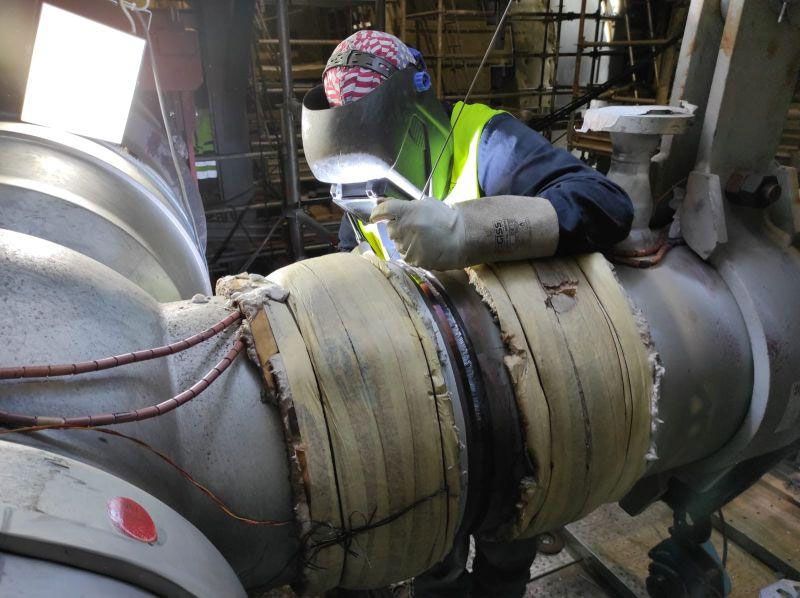Preheating Services Gulf Coast USA
About Preheating
Preheating is the process of raising the temperature of materials, primarily metals, before welding or heat treatment. This critical technique enhances the quality of the weld by ensuring the materials are adequately prepared, thereby reducing the risk of defects such as cracks or warping during the process. In high-stakes on-site applications, proper preheating is essential for creating stronger and more reliable joints, directly impacting the performance and safety of the final product on-site.
These services encompass a range of specialized techniques designed to heat materials to specific temperatures before the welding process. These services are vital in various sectors, especially in the heat treatment, and metalworking industries, where the quality and durability of the finished product are of utmost importance.
Employing professional services of preheating on-site, companies can ensure that their materials are effectively prepared for heat treatment, leading to improved joint strength, enhanced safety, and greater overall efficiency in their projects, allowing them to create and produce high-quality results consistently.
Preheating Services in Gulf Coast Area
In the Gulf Coast area—encompassing Texas, Mississippi, Alabama, Florida, and Louisiana—where the demand for robust and efficient heat and welding solutions is high, preheating solutions are tailored to meet the unique needs of various industries, including oil, gas, construction, and manufacturing. The regional climate can pose challenges, making heating essential to maintain consistent quality on-site.
Using effective preheating methods on-site, professionals can ensure that materials reach the desired temperature before heat treatment, resulting in superior performance and durability of the final product at the work site.
Post Weld Heat Treatment
Post weld heat treatment (PWHT) is a crucial follow-up process that complements heat treatment preparation. After welding, PWHT reheats the material to relieve internal stresses, improve mechanical properties, and enhance corrosion resistance, which is especially important for materials in demanding environments like oil pipelines and structural components. By incorporating PWHT, companies can ensure the integrity and longevity of their projects, particularly for fuel systems and piping.
Combining preheating and heat treatment is essential for achieving high-quality welds. Proper heating reduces idle time and maximizes efficiency, enabling businesses to complete projects on schedule. Whether you’re working on a large-scale project in the Gulf Coast Area or need specialized heat management solutions, these services enhance safety, effectiveness, and overall project success.
Contact Us
If you’re looking for top-notch preheating services and PWHT solutions, Onsite USA is here to help! Our team delivers efficient and reliable heat treatment services tailored to your project needs. Whether you’re working on a large-scale project in the Gulf Coast Area or need specialized on-site heating solutions, we save your team time with our professional services that boost productivity.
Contact us today at 346-291-2058 to learn how our expertise can enhance the quality and performance of your heat treatment processes. Your project’s success is our priority, and we are committed to providing the best preheating and heat treatment services in the industry!
Request A Quote
Thank you for contacting Onsite USA.
We will get back to you as soon as possible.
Please try again later.
Frequently Asked Questions
What is preheat treatment?
Preheat treatment is a heating process applied to materials before welding to improve their performance and reduce the risk of defects.
What is preheating process?
The preheating process involves gradually raising the temperature of materials to a specified level before welding to enhance weld quality.
What is the function of preheating?
The function of preheating is to minimize thermal shock, reduce stress, and prevent cracking in welded joints.
Browse Our Website
Locations
Onsite USA




